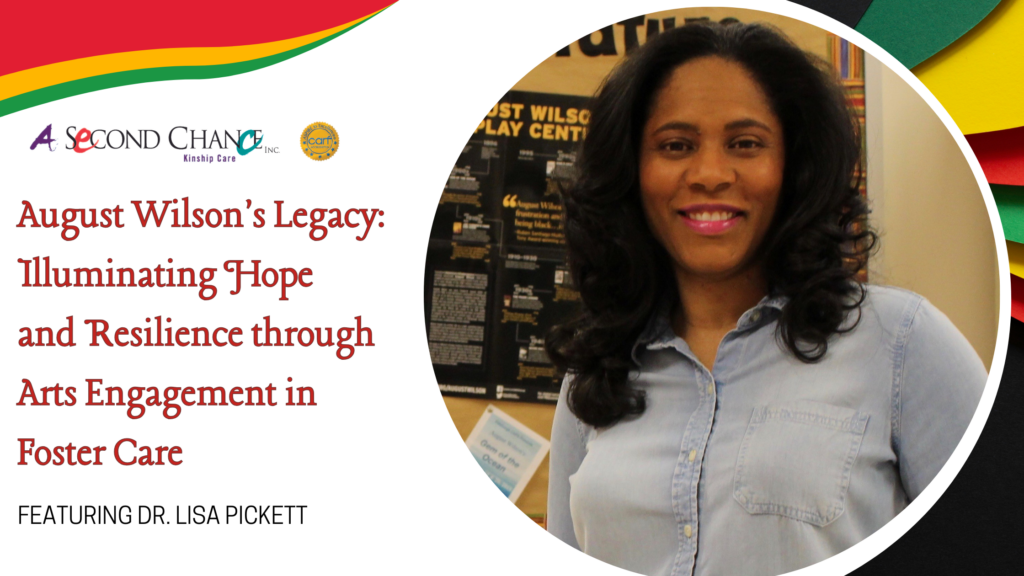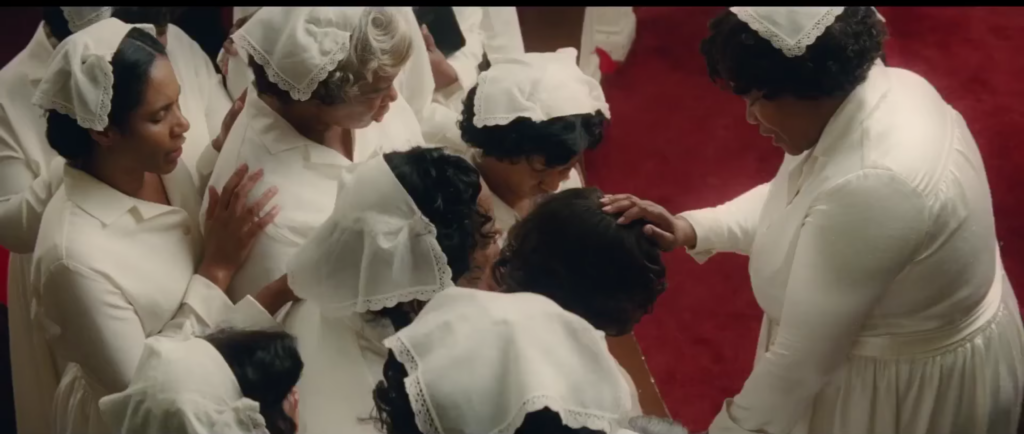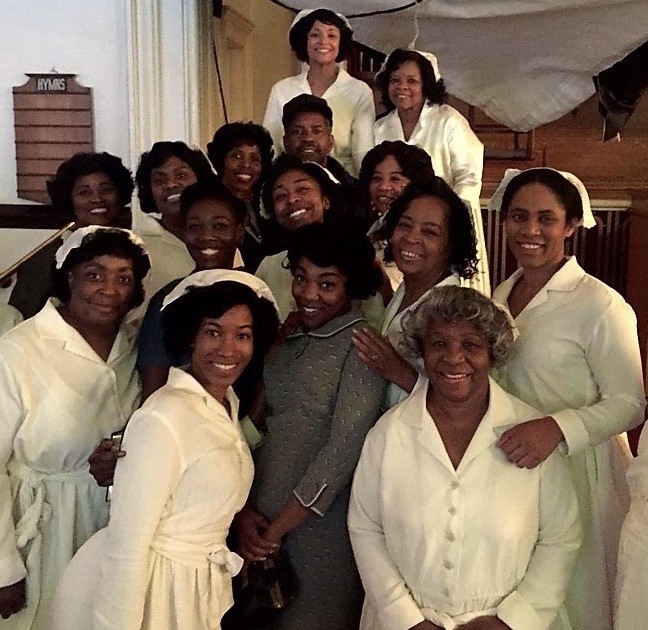Blog
August Wilson’s Legacy: Illuminating Hope and Resilience through Arts Engagement in Foster Care
In the vibrant tapestry of Black History Month 2024, a theme of profound resonance emerges—African Americans in the Arts. As we celebrate the extraordinary contributions of African Americans to the cultural landscape, this year’s theme intricately weaves a narrative that extends beyond historical achievements to illuminate the impactful role of the arts in contemporary society. Particularly poignant is the connection to youth in care, where the transformative power of artistic expression serves as a guiding light. Through the lens of African Americans in the Arts, we explore how creativity becomes a conduit for empowerment, self-discovery, and resilience for young individuals navigating the intricate path of foster care.

ASCI had the opportunity to speak with Dr. Lisa Pickett, Ed.D., an advocate, educator, and foster care alumna. She passionately shares her insights on the transformative power of August Wilson’s work and the role of the arts in fostering community and identity.
In the heart of Pittsburgh, where steel once echoed through the city’s veins, there exists a different kind of resonance today—an artistic symphony echoing the stories, struggles, and triumphs of the African American community.
August Wilson, whose ten plays in the Pittsburgh cycle paint a vivid portrait of African American life. The plays serve as a cultural compass, offering a sanctuary for the community to explore, celebrate, and reclaim aspects of their identity often relegated to the shadows.
“He frames it in a way that allows us to give ourselves back what was taken away from us, in terms of thinking, that we need permission to talk about our culture, what we do within our families and what we eat and thinking that we need permission to have a sense of community,” Dr. Picket told ASCI.
“Unapologetic” becomes the mantra as Wilson fearlessly portrays African American culture, breaking away from societal norms that once dictated what aspects of identity could be openly discussed. Through his plays, the narrative shifts from a perceived lack of community to a vibrant tapestry of traditions, friendships, and familial bonds. Wilson’s portrayal of African American experiences transcends the stage, influencing conversations and understanding, especially for youth in foster care.

Dr. Pickett emphasizes the plays’ role in addressing deep-seated issues, from racism to internalized struggles with identity.
The plays provide a rich canvas for discussions on history, spirituality, and the multifaceted aspects of African American culture.
Dr. Pickett (far left) on the set of Fences
Photo provided by Dr. Lisa Pickett
“He was sitting in libraries, Carnegie Library in particular, all day just reading and researching and then designing these plays with all these layers. It’s almost like there’s nothing in his plays that doesn’t connect to the community from the characters, their names, their actions, what they do.”
Dr. Pickett shared with ASCI
Dr. Pickett sheds light on initiatives such as the August Wilson Center, a beacon dedicated to preserving and advancing the legacy of his work. Pittsburgh Playwrights and public schools adopting Wilson’s plays demonstrate a commitment to integrating African American narratives into education, ensuring the stories resonate beyond the stage.

August Wilson’s commitment to authenticity empowers marginalized communities by putting their stories front and center. Dr. Pickett emphasizes how the plays honor, respect, and celebrate various aspects of African American life, fostering resilience and intelligence often overshadowed by historical narratives.
Wilson’s legacy extends to ensuring equal access to arts education for underrepresented groups, breaking the monolithic dominance of traditional narratives. Dr. Pickett underscores the need for systemic commitment—from politicians to educators—to make arts education accessible and inclusive.
Denzel Washington, extras and Dr. Pickett (far right) on the set of Fences
Photo provided by Dr. Lisa Pickett
“He wrote 10 iconic plays that allow African Americans to step on the stage to perform and be immersed in a world that is about them. You would do things like Shakespeare or The Crucible, but with August Wilson, it gives us space to be able to do something that embraces African American cultures, which are at that time when he wrote all those pieces underrepresented groups in the community,” Dr. Pickett told ASCI.
Connecting with the arts serves as a therapeutic channel, particularly for young individuals in foster care. Dr. Pickett taps into her encounters, underscoring the arts as a sanctuary for self-expression, happiness, and fortitude. Mentorship initiatives within artistic realms surface as crucial lifelines, extending guidance and assistance to youths grappling with the intricacies of foster care. She illuminates the significant influence of arts involvement on emotional wellness and its pivotal role in addressing the distinctive hurdles associated with foster care.
She stated, “It can help African American youth to be in spaces where they can think about their sense of identity because they could do pieces like August Wilson’s plays that can connect them to different elements of their own identity. It gives them a sense of belonging. They’re able to analyze and assess information from their voices and perspectives because in the arts.”
Dr. Lisa Pickett’s insights into August Wilson’s artistic legacy showcase the transformative power of the arts in fostering community, empowering individuals, and addressing social issues. Wilson’s unapologetic celebration of African American culture becomes a beacon for communities seeking identity, pride, and understanding. The arts, as a tool for advocacy, mentorship, and community connection, have the potential to create lasting positive change, particularly for marginalized groups like youth in foster care. By embracing and promoting the arts, we open doors to a more inclusive and empowered society.